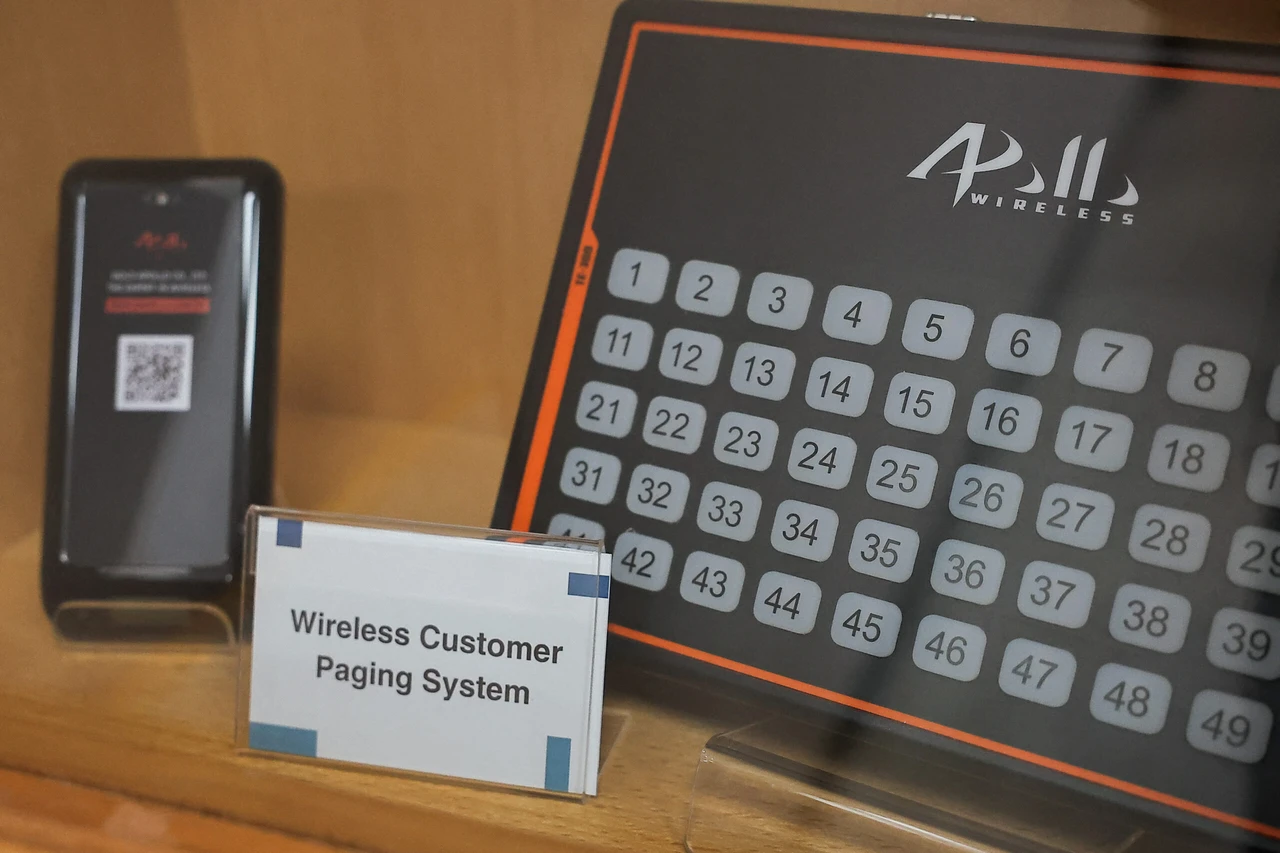Pager bombings in Lebanon highlight new 21st-century security threat
 Pagers on display at the Gold Apollo office in New Taipei City, Taiwan, September 18, 2024. (Reuters Photo)
Pagers on display at the Gold Apollo office in New Taipei City, Taiwan, September 18, 2024. (Reuters Photo)
The recent pager and radio bomb attacks in Lebanon have introduced a new type of 21st-century security threat that requires urgent global attention, warns American geopolitical analyst Rich Outzen.
The attacks, which claimed over 30 lives and injured thousands, have sparked concerns over state-backed operations and supply chain vulnerabilities.
Unmatched scale, coordination in Lebanon pager attacks
Outzen, a retired U.S. colonel, described the attacks as unprecedented in scale and method, highlighting new security threats.
“While using explosives in cell phones isn’t new, the level of preparation and coordination we saw in Lebanon is something we’ve not encountered before,” Outzen told Anadolu in an interview Wednesday. He emphasized that this marked a significant escalation, especially if state actors were involved.
What sets these attacks apart, according to Outzen, is the sophisticated coordination and the use of seemingly ordinary communication devices as deadly weapons. He highlighted the potential for terrorist groups to replicate these methods, though he noted that carrying out such a large-scale operation would be difficult for most non-state actors.
“Doing it at this scale is hard to replicate, but it’s a new threat that we now have to consider for critical locations like airports and political headquarters,” Outzen said. “It’s a risk that we all must take seriously as we move further into the 21st century.”
Outzen pointed to the likely involvement of Israel, characterizing the explosions as an intelligence operation rather than conventional military action.
“These kinds of operations often blur the lines between intelligence work and conventional warfare, but this looks more like the work of Israeli intelligence, not the military,” he remarked.
Supply chain vulnerabilities pose new security threat with pagers turned into weapons
Outzen also focused on the vulnerabilities in the global supply chain, particularly for electronic devices. Media reports have suggested that Hezbollah recently obtained pagers from Taiwan, which might have been compromised during shipping.
“It seems likely that Israeli intelligence intercepted these devices and inserted explosives into them before they reached Lebanon,” Outzen explained. “There have been reports that a digital signal was sent to these pagers shortly before they exploded.”
This incident has highlighted a growing concern over the security of electronic devices shipped across borders, a vulnerability that malicious actors could exploit in future attacks.
“The West, and particularly the U.S., need to pay close attention to how these devices are sourced and handled,” Outzen cautioned. “If online retailers don’t tighten security around electronics, we could be looking at more attacks like this.”
The bombings in Lebanon have left a devastating toll. The Lebanese Ministry of Health reported that Wednesday’s explosion of ICOM wireless communication devices killed 20 people and injured more than 450. This follows Tuesday’s similar attack, which left 12 dead and around 2,800 injured, including 300 critically. The combined death toll from both attacks has now reached 32, with over 3,250 people injured.
In response, Hezbollah has accused Israel of orchestrating the attacks and vowed to retaliate. Israel has remained silent on the accusations, though American media outlets such as The New York Times and CNN have reported that Israeli intelligence planted explosive materials in the pagers’ batteries and remotely triggered the blasts.
Outzen emphasized that such security threats underline the increasing overlap between intelligence operations and conventional warfare. He also pointed out that while Iran has not declared war on Israel, it has been waging a proxy conflict with the country, though it lacks the technological capabilities to match Israel’s sophisticated operations.
As the investigation into the bombings continues, analysts are warning that these attacks could signal a new phase in modern warfare, highlighting news security threats. Outzen believes that governments worldwide must re-evaluate their security protocols, particularly around sensitive sites and supply chains for electronics.
“This is a stark reminder that in today’s world, even everyday devices like pagers can be weaponized,” Outzen said. “Security measures, especially for electronics, need to evolve to meet this new threat.”



